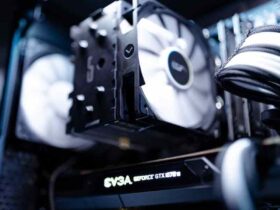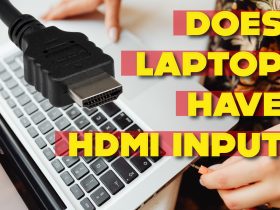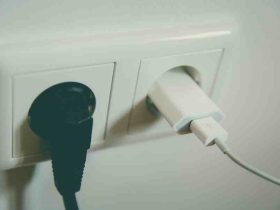The frustration of typing an important document or engaging in an intense gaming session only to have your keyboard suddenly disconnect is a shared experience among computer users. This vexing issue can disrupt productivity and enjoyment, prompting the question, “Why does my keyboard keep disconnecting?” In this article, we delve into the intricacies of this problem, exploring its various causes and offering practical solutions. Whether you’re using a wired or wireless keyboard, understanding the underlying reasons behind these disconnects is the first step toward resolving them. We’ll guide you through troubleshooting steps and preventative measures and even share expert insights to ensure your keyboard remains a reliable tool for your computing needs. Say goodbye to keyboard disconnect frustrations as we unravel the mysteries and provide you with the knowledge to tackle this common issue head-on.
Why Does My Keyboard Keep Disconnecting?
Keyboard disconnection issues can be frustrating, but they are typically caused by several common factors:
- Wireless Signal Interference: If you’re using a wireless keyboard, signal interference from other electronic devices like Wi-Fi routers, cordless phones, or Bluetooth devices can disrupt the connection.
- Hardware And Cable Issues: For wired keyboards, loose or damaged USB cables or faulty keyboard connectors can lead to intermittent disconnections.
- Driver And Software Problems: Outdated or corrupted keyboard drivers, as well as software conflicts, can result in keyboard disconnects. Ensuring you have the latest drivers and troubleshooting software conflicts can help.
- Power-Related Issues: Low battery levels in wireless keyboards or insufficient power supply to USB ports for wired keyboards can cause disconnection problems.
- Physical Obstructions: Wireless keyboards may experience disconnections if there are physical obstructions between the keyboard and its receiver.
- Radio Frequency (RF) Interference: Wireless keyboards that use RF technology can experience interference from other RF devices.
- Proximity To Strong Magnets: Placing your keyboard near strong magnets or magnetic fields can interfere with the keyboard’s functionality.
How To Resolve Keyboard Disconnection Issues?
To resolve keyboard disconnection issues, try the following steps:
- Check For Interference: Identify and remove potential sources of interference near your keyboard and receiver.
- Inspect Cables And Ports: For wired keyboards, inspect USB cables and ports for damage. Replace faulty cables or use different USB ports.
- Update Drivers: Ensure your keyboard drivers are up-to-date. You can usually find these on the manufacturer’s website.
- Change Batteries: If using a wireless keyboard, replace the batteries with fresh ones.
- Reconnect: Unplug and reinsert the keyboard cable or receiver to re-establish the connection.
- Restart Computer: Sometimes, a simple computer restart can resolve connectivity issues.
- Use A USB Hub: If power-related issues are the problem, consider using a powered USB hub to ensure a stable power supply.
By following these troubleshooting steps, you can often identify and resolve the underlying cause of your keyboard disconnecting. If the issue persists, it may be time to contact the manufacturer’s support or consider replacing the keyboard.
Preventative Measures
To prevent keyboard disconnection issues in the future, consider implementing the following preventative measures:
- Proper Keyboard Placement: Ensure your keyboard is placed on a stable and flat surface to prevent accidental movement or jostling. Avoid placing heavy objects on or near the keyboard.
- Maintenance: Regularly clean your keyboard to prevent dust and debris buildup. Use compressed air to blow out particles from under the keys. Clean spills promptly to prevent damage.
- Quality Peripherals: Invest in a high-quality keyboard from a reputable manufacturer. Quality keyboards are less likely to develop hardware issues.
- Driver And Firmware Updates: Regularly check for driver and firmware updates for your keyboard model. Manufacturers often release updates to improve performance and stability.
- Wireless Signal Management: If you use a wireless keyboard, keep the keyboard and receiver within the recommended range specified by the manufacturer. Minimize the number of wireless devices operating in the same area to reduce signal interference.
- RF Interference Avoidance: If your wireless keyboard uses RF technology, be mindful of other RF devices in the vicinity. Try to avoid using multiple RF devices simultaneously.
- Battery Maintenance: For wireless keyboards, replace the batteries proactively, even if they haven’t run out completely. Low battery levels can lead to connectivity issues.
- USB Port Management: Avoid overloading USB ports with too many devices, as this can lead to power issues. Consider using a powered USB hub if you have many peripherals.
- Software Monitoring: Use system monitoring tools or keyboard management software provided by the manufacturer to check the status of your keyboard and troubleshoot issues.
- Regular Inspections: Periodically inspect the keyboard’s physical condition, including the cable and connectors for wired keyboards and the battery compartment for wireless keyboards.
Expert Advice
Expert advice on preventing and addressing keyboard disconnection issues can provide valuable insights and solutions. Here are some expert tips and recommendations:
- Wireless Signal Management: According to experts, one of the most common causes of wireless keyboard disconnection is signal interference. To address this, consider using a wireless keyboard with multiple frequency options. This allows you to switch frequencies if interference occurs.
- Driver And Firmware Updates: Experts recommend regularly checking for driver and firmware updates from the keyboard manufacturer’s official website. These updates often include bug fixes and improvements to address connectivity issues.
- Keyboard Placement: Experts emphasize the importance of keyboard placement. Avoid placing your keyboard close to electronic devices that emit strong signals, such as routers or cordless phones. Opt for a clear line of sight between the keyboard and its receiver for wireless models.
- Power Management: To prevent power-related disconnection problems, experts suggest connecting your keyboard to a powered USB hub or using a keyboard with low power consumption. This can ensure a stable power supply, especially if you have multiple USB devices connected.
- USB Port Inspection: Experts recommend periodically inspecting USB ports and cables for wear and tear. Damaged ports or cables can lead to connectivity issues. Replacing faulty cables or using different USB ports can resolve this.
- Quality Peripherals: According to experts, investing in a high-quality keyboard from a reputable manufacturer can significantly reduce the likelihood of hardware-related disconnections. These keyboards are built to higher standards and are less prone to failure.
- Wireless Range: Experts advise staying within the specified wireless range of your keyboard and receiver. Going beyond the recommended distance can lead to signal loss and disconnection.
- Battery Monitoring: For wireless keyboards, experts recommend keeping a close eye on battery levels. Replace batteries when they are low to prevent unexpected disconnections during critical tasks.
- Proactive Maintenance: Finally, experts stress the importance of proactive maintenance. Regularly clean your keyboard, update drivers and firmware, and follow best practices to ensure a trouble-free typing experience.
Final Word
In the world of technology, where our devices are indispensable, a reliable keyboard is paramount. The persistence of keyboard disconnection issues may test your patience, but armed with knowledge and preventative measures, you can overcome this common obstacle. Remember, a well-maintained keyboard and a proactive approach can ensure that your typing experience remains seamless and uninterrupted. Embrace the power of troubleshooting and maintenance to conquer keyboard disconnects and maintain your productivity in the digital realm. Your keyboard is your gateway; keep it connected, keep it efficient.
FAQ’s
How Do I Know If My Keyboard Is Wireless Or Wired?
Wireless keyboards use batteries and don’t have a cable, while wired keyboards have a USB cable that connects to your computer.
Can A Low Battery Cause Keyboard Disconnection?
Yes, low battery levels are a common cause of wireless keyboard disconnections. Replace the batteries when they’re low.
Do I Need To Update My Keyboard Drivers Regularly?
Yes, updating keyboard drivers can resolve connectivity issues. Check for updates on the manufacturer’s website periodically.
What Should I Do If My Wired Keyboard Keeps Disconnecting?
Check the USB cable and port for damage. Reconnect the cable or try a different USB port.
How Can I Avoid Wireless Signal Interference With My Keyboard?
Keep your keyboard away from devices like Wi-Fi routers, cordless phones, and Bluetooth devices. Use a keyboard with multiple frequency options to switch frequencies if interference occurs.
























Leave a Reply